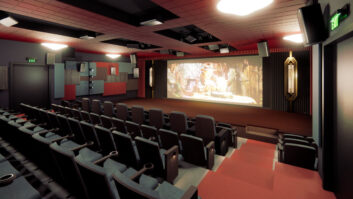Charlie Ergen and company are faced with a dilemma. The chairman of EchoStar has built his business on the backs of the small, independent satellite retailers, also known in the satellite business as a Television Receive Only (or TVRO) dealers.
These foot soldiers have helped EchoStar to its current prominent status in the U.S. Direct Broadcast Satellite (DBS) business. Yet in the wake of EchoStar’s quest to acquire rival DirecTV (and to deal with an increasingly more complicated distribution environment), Ergen’s team is finding it increasingly difficult to pay the commissions these dealers made in the past.
Between them, EchoStar and DirecTV list approximately 50,000 total retail dealer affiliations, 30,000 for DirecTV and 20,000 for EchoStar. These points of sale are critical to both system operators, because they don’t just sell basic set-top boxes, programming, dishes and remote controls. They sell customer satisfaction and ancillary goods, the value of which, is close to “priceless.”
What is happening, however, is something a combined EchoStar and DirecTV might not be able to avoid. Because the merged company is much bigger, the new DirecTV by EchoStar may have no choice but to shift more swiftly toward a direct-to-consumer distribution model.
Both the existing Internet and call-in ordering systems are expected to expand markedly, which ultimately means more money for the new company and less money for retailers.
DirecTV ended its affiliations with some 4,000 satellite retailers during the past several months, citing poor performance and high churn among customers those dealers enlisted. This suggests DirecTV was trying to attack piracy and churn concerns, by allying more closely with retailers who draw a greater percentage of solid, loyal and committed subscribers.
Some dealers worried that competition in the retail space will suffer if the EchoStar purchase of DirecTV is allowed. Fewer hardware models are expected to be available for sale at fewer CE manufacturers.
In addition, many satellite retailers are just now hearing from the satellite radio industry that they may be excluded from that sales avenue, as well.
In the early days of DBS, comparisons to the cellular phone business model were made. People said it was but a matter of time until set-tops and the overall hardware were reduced in price to almost nothing, in order to get the customer and the monthly revenue stream. Today, DBS is carrying that mimic one step further, by involving certain retailers less and less. Instead, it would not be surprising to see DBS leave many more front-line retailers while shifting to retail middlemen, in a practice similar to that followed by today’s cellular industry.
The bottom line is the DBS system operator can more effectively control the quality of the sale by doing the work itself, and save a bundle on commission pay outs. Additionally, a new DirecTV by EchoStar can cut special deals with outlets like Blockbuster to attract those video customers and refer them to a DirecTV sales representative to sell programming options.
That way DirecTV should have better control of the customer, offering other options, such as equipment leasing or sales of ancillary devices and services.
More importantly, they can ensure a customer is credit worthy, and less likely to drop service in the short term. From an accounting standpoint, this method also has more value because when the hardware is leased, it stays on the books as an asset, making the company look stronger to investors at review and audit time.
Once cable companies truly embrace the retail distribution, will the DirecTV by EchoStar stick exclusivity clauses in their contracts? The precedent has been established.
In the end, if the companies are merged, it will be very interesting to see if Charile Ergen (and companies) embrace and return the loyalty shown by a lot of DISH Network CE and satellite dealers. Will a thumbs up or a thumbs down turn on key performance benchmarks? Will other criteria be the measure? In the end, who will be among the chosen few?













